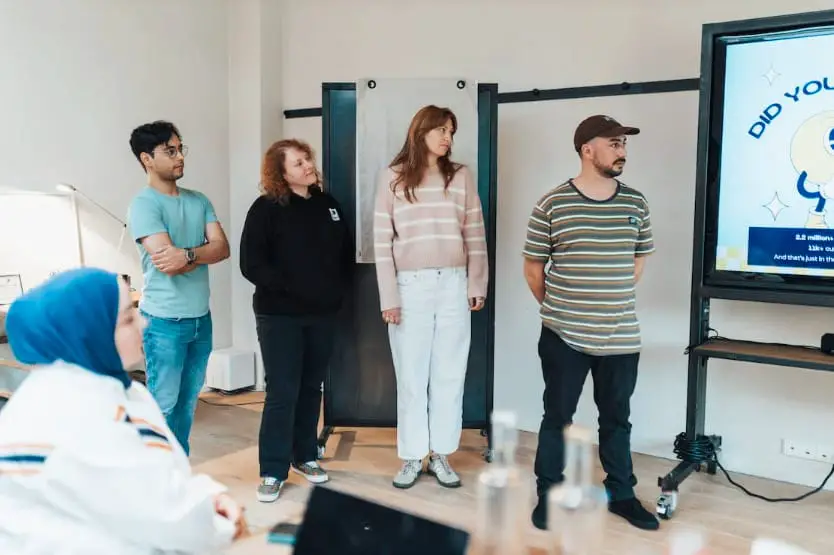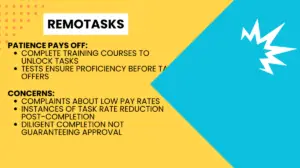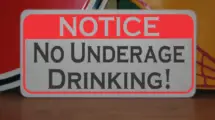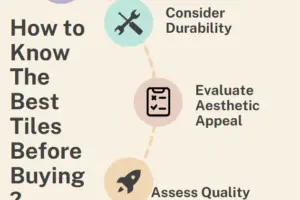
What is Parent Management Training (PMT)?
Parent Management Training (PMT), also known as Behavioral Parent Training (BPT), is a helpful program for parents dealing with challenging behaviors in their children.
It’s like a guidebook that teaches parents ways to improve their child’s behavior and learn new skills.
PMT is mainly used for kids with behaviors like being defiant or aggressive.
However, parents facing everyday issues can also benefit. It’s not just for kids with diagnosed problems.
Here’s the cool part: PMT has a success rate of 92% in reducing things like aggression and defiance in kids.
It’s a top-notch treatment for conditions like ADHD, ODD, conduct disorder, DMDD, and Intermittent Explosive Disorder.
The program lasts a few months, and parents learn to encourage good behavior with praise and rewards.
They also learn how to set proper limits and handle inappropriate behavior by paying less attention.
In a nutshell, PMT is like superhero training for parents, helping them turn challenges into successes and create a happier family.
Purpose of PMT
The purpose of Parent Management Training (PMT) is to assist parents in effectively managing and addressing challenging behaviors in their children.
Here’s a breakdown of the key purposes of PMT:
Behavioral Change
PMT aims to bring about positive changes in children’s behavior, especially when dealing with oppositional, aggressive, and antisocial behaviors.
Indeed, it provides parents with practical strategies to encourage positive behaviors and discourage negative ones.
Skill Development
The program focuses on equipping parents with new skills.
This includes effective communication, problem-solving, and positive reinforcement techniques.
Parents learn how to interact with their children in a way that fosters a healthier parent-child relationship.
Operant Conditioning
The principles of operant conditioning, a psychological concept, root PMT.
It involves modifying behavior through reinforcement and punishment.
Parents are taught how to reinforce desirable behaviors and manage inappropriate ones using these principles.
Treatment for Behavioral Disorders
PMT is commonly used as a treatment for children and adolescents with diagnosed behavioral disorders such as ADHD, Oppositional Defiant Disorder (ODD).
In addition to Conduct Disorder, Disruptive Mood Dysregulation Disorder (DMDD), and Intermittent Explosive Disorder.
It has shown success in reducing symptoms associated with these conditions.
General Parental Guidance
While originally designed for children with diagnosed behavioral issues, PMT strategies can also benefit parents dealing with typical parenting challenges.
It offers general guidance for parents seeking effective ways to handle everyday parenting situations.
Promotion of Positive Reinforcement
PMT emphasizes the use of positive reinforcement, including praise and rewards, to motivate and encourage appropriate behaviors in children.
This positive approach helps create a more supportive and nurturing family environment.
Improvement in Parent-Child Relationships
By enhancing communication, setting clear expectations, and reinforcing positive behaviors, PMT contributes to the overall improvement of the parent-child relationship.
This often leads to a more harmonious and positive family dynamic.
In summary, the purpose of PMT is to empower parents with the knowledge and skills needed to create a positive and supportive family environment, manage challenging behaviors, and contribute to the overall well-being and development of their children.
Key Principles of PMT
Parent Management Training (PMT) is a treatment approach that aims to change parenting behaviors, specifically to treat children and adolescents with oppositional, aggressive, and antisocial behaviors.
Here are the key principles of PMT:
- Improve Parent Management Skills: PMT aims to enhance parents’ skills and competence in dealing with child behavior problems.
- Increase Knowledge on Causes of Defiant Behavior: Parents are educated about the causes of defiant behavior, which can help them better understand and manage their child’s behavior.
- Decrease or Eliminate Disruptive or Inappropriate Behaviors: The goal is to reduce or eliminate a child’s disruptive or inappropriate behaviors.
- Increase Child Prosocial Behavior and Compliance to Commands and Rules: PMT also aims to increase a child’s prosocial behavior and compliance to commands and rules.
- Correct Maladaptive Parent-Child Interactions: PMT works to correct maladaptive parent-child interactions, thereby improving family unity.
- Stress Management While Parenting: Parents are trained in stress management techniques to help them cope with the challenges of parenting.
- Focus on Positive Aspects of Children: Parents are encouraged to focus on the positive sides of their children.
- Improving Parent-Child Relation and Family Environment: The results of the PMT programs are not only limited to improvement in children’s behavior but also effecting in improving parent-child relation, the environment of the family, social behavior of children, better performance in school.
These principles, grounded in social learning theory, manipulate the antecedents and consequences of children’s behaviors to increase desired behavior and decrease undesirable behavior.
An underlying assumption of the PMT model is that a parenting skills deficit is at least partly responsible for the development and/or maintenance of the disruptive child behavior.
Different Types of PMT Programs
There are several types of Parent Management Training (PMT) programs, each with a different focus and approach:
- Parent-Child Interaction Therapy (PCIT): This program involves a therapist working with the parent and child together, coaching the parent in using praise and effective consequences.
- Parent Management Training (PMT): This program is for parents of kids up to age 12 and helps parents learn several skills to manage behavior.
- The Incredible Years: This program offers similar training to small groups of parents.
- Behavioral and Emotional Skills Training (BEST): This program uses a group format, but it is a one-day intensive program.
- Positive Parenting Program (Triple P): This is a more general program that can be used for any age group. It can be customized for more severe behavior challenges.
- Defiant Teens: This program starts by teaching communication skills to parents and then involves the teen in later sessions.
Effectiveness of PMT
PMT has been shown to be effective in treating disruptive behavior during childhood.
It has a 92% success rate in decreasing aggression, defiance, and oppositional behavior in children and adolescents.
People consider it as the most well-established treatment for children with ADHD, ODD, Conduct Disorder, DMDD, and Intermittent Explosive Disorder.
However, while PMT interventions have helped many families and parents manage their children’s behavior, some modifications are still needed in the therapy program for more effectiveness in PMTs programs.
Target Audience for PMT
The primary focus of PMT has been on treatment for children with oppositional, aggressive, and antisocial behaviors.
However, PMT strategies can also be used for parents who would like guidance on typical parenting issues, even without their child having a clinical diagnosis or atypical behavioral issue.
PMT is for the 3-13 age group, where only parents must consult the therapist.
Process of PMT
In PMT, caregivers work with a therapist who educates them in the use of specific techniques to alter parent-child interactions.
PMT procedures typically involve programming behavioral contingencies into the contexts in which the disruptive behavior is occurring, such as home or school
Training is often provided in weekly individual or group sessions for 10–16 weeks
After caregivers learn a new skill, such as using time out effectively, they go home and practice the skill with their child for a week.
They review their progress, solve any issues, and then learn a new skill in the subsequent sessions.



















































